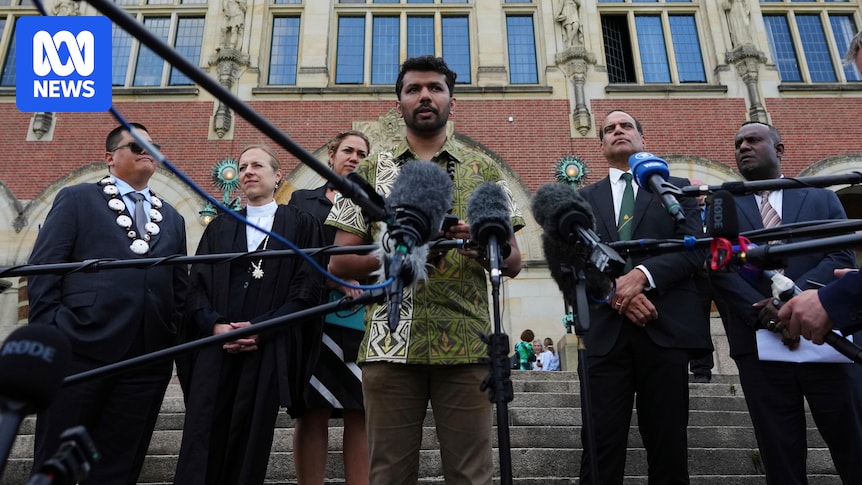Fiji student Vishal Prasad found himself in the spotlight after the International Court of Justice (ICJ) issued a landmark ruling on climate change, affirming countries’ legal obligations to curb greenhouse gas emissions. This decision, stemming from years of advocacy by students, was described by Prasad as shocking. The ICJ concluded that countries failing to protect the climate could be held liable for damages to those affected by climate change.
While the ruling is non-binding, it empowers Pacific nations and activists to push for reductions in carbon emissions and potentially pursue legal actions against major polluters, particularly Australia. Concerns remain, however, with some Pacific leaders opting for a more cautious approach instead of immediate legal action. Despite this, activists believe the ruling gives them leverage in upcoming climate negotiations.
The ICJ emphasized the right to a “clean, healthy, and stable environment,” labeling certain fossil fuel activities as potentially illegal. The verdict aims to shift the trajectory of international climate discussions, encouraging countries like Australia to commit to more ambitious climate goals.
The ruling, which could influence future reparations for climate-related damages, is set to return to the UN General Assembly for further endorsement, potentially enhancing its authority. Overall, the decision is regarded as a significant step in the climate advocacy movement, offering hope to young activists in the Pacific.
Source link


